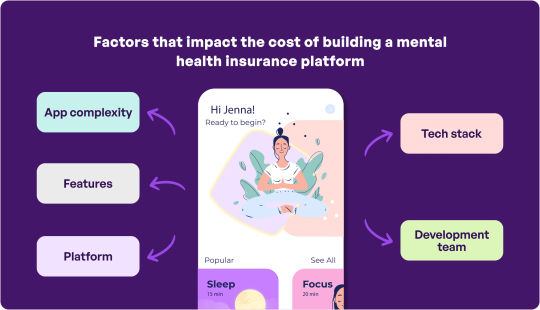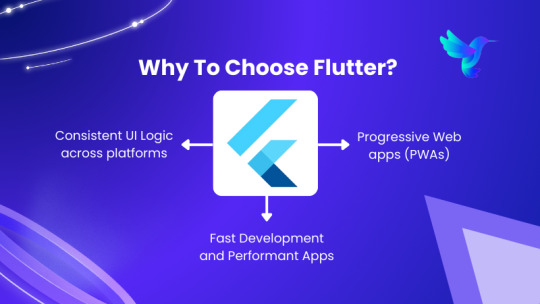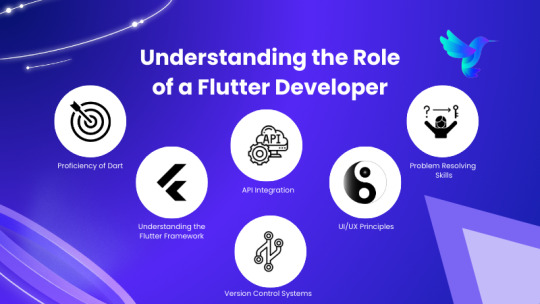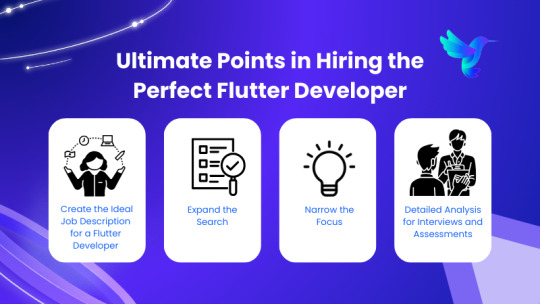#Mobile App Building Software
Explore tagged Tumblr posts
Text
Apploy: The Best Shopify Mobile App Builder to Boost Sales
What is Apploy? Apploy is a no-code Shopify mobile app builder designed to help merchants create powerful, high-performing mobile apps. With Apploy, turning your Shopify store into a fully functional mobile app is simple, fast, and accessible; even for non-tech users.
Key Features of Apploy:
Custom Mobile App Builder: Apploy acts as a custom mobile app builder, allowing you to design and personalize every aspect of your app to match your brand identity.
Drag and Drop Interface: Its intuitive drag-and-drop system makes it easy to build layouts, customize navigation, and create a tailored shopping experience.
Real-Time Shopify Sync: Products, inventory, and collections are automatically synced with your store for seamless updates.
Push Notifications: Send targeted push notifications for offers, restocks, and abandoned cart reminders to drive engagement and sales.
Multi-language & Currency Support: Reach global audiences with full localization features.
Mobile-Optimized Experience: Built to perform smoothly across Android and iOS devices.
Boosting Sales for Shopify Merchants: As one of the best mobile app building software options for Shopify, Apploy helps merchants convert more mobile users by providing a faster, easier, and more engaging shopping experience. Push notifications encourage repeat visits, and the user-friendly interface leads to higher conversion rates. Whether you're a small brand or a growing business, Apploy empowers you to boost sales and customer loyalty with your own branded mobile app.
#No code mobile app builder#Custom mobile app builder#Shopify mobile app builder#Best mobile app building software#Ecommerce mobile app builder
0 notes
Text

Looking to build a powerful Android, iOS, or cross-platform app in 2025? At CQLsys Technologies, we provide certified, experienced mobile app developers for businesses across the USA & Canada. Whether you need a full project team or a dedicated developer, we deliver top-quality apps tailored to your business goals.
✔️ 12+ Years of Industry Experience ✔️ 4500+ Mobile & Web Apps Delivered ✔️ Expert in Flutter, React Native, Kotlin, Swift ✔️ Fast Turnaround & Scalable Architecture ✔️ Trusted by Global Brands & Startups 🔁 Scale faster with expert developers 📩 Contact us now for a FREE consultation or to get a quote! 🌐 Visit: www.cqlsys.com | 📞 +91-9872551070
#taxi booking app development company#ride hailing apps#taxi dispatch software#taxi dispatch system prices#taxi booking app development#ride sharing app#best taxi dispatch software#taxi dispatch software free#taxi app development company#carpool app#taxi cab dispatch software#taxi cab dispatch system#taxi app development#uber clone apps#cab dispatch software#cab dispatch system#taxi app development services#uber taxi app#software for taxi business#taxi software#taxi booking mobile app development#app like Ola#software taxi dispatch#taxi booking software#taxi application development#build taxi app#taxi dispatch system#software taxi#white label taxi app development#create taxi app
0 notes
Text
How to Build a Website and Application from Scratch
In the modern digital landscape, a professionally crafted website or application is no longer a luxury—it’s a necessity for businesses, brands, and startups alike. Whether you're a solo entrepreneur or managing a growing company, understanding how to build a website and application from the ground up can empower you to bring your ideas to life and reach a wider audience.
Define Your Goals and Requirements
Before you start designing or coding anything, it's critical to clearly define your objectives:
What is the purpose of the website/app?
Who is your target audience?
What features are necessary?
Will it be a static website, dynamic platform, or full-stack web app?
Pro Tip: Create wireframes or sketches of the user interface (UI) to visualize your idea.
2) Choose the Right Tech Stack
Depending on your project, select the technologies that suit your needs. Some popular stacks include:
Frontend: HTML, CSS, JavaScript (React, Vue, Angular)
Backend: Node.js, Python (Django), PHP, Ruby on Rails
Database: MySQL, MongoDB, PostgreSQL
Mobile App: Flutter, React Native, Swift (iOS), Kotlin (Android)
Tip: For startups, using open-source tools or low-code platforms can reduce costs and time.
3) Register a Domain and Choose Hosting
Your domain name is your digital identity. Choose a name that reflects your brand, and register it through a reliable provider like GoDaddy, Namecheap, or Google Domains.
For hosting, consider:
Shared Hosting for small websites
Cloud Hosting (like AWS, Azure, DigitalOcean) for scalable applications
4) Design the User Interface (UI/UX)
An intuitive, mobile-responsive design increases user engagement and conversions. Tools like Figma, Adobe XD, or Sketch can help you prototype the layout before development.
5) Begin Development: Frontend and Backend
Start with building the frontend using frameworks like React or Vue.
Develop the backend API to handle business logic, databases, and server interactions.
Ensure proper data validation, security, and error handling.
6) Integrate Features & APIs
Add features like:
User registration/login
Contact forms
Payment gateways (Stripe, Razorpay, PayPal)
Third-party APIs (Maps, SMS, etc.)
7) Test Thoroughly Before Launch Conduct:
Unit Testing (for individual components)
Integration Testing (for connected modules)
User Acceptance Testing (UAT) to get feedback from real users
Tools: Jest, Selenium, Cypress, Postman
8) Launch and Monitor
Deploy your app/website using tools like:
CI/CD pipelines (GitHub Actions, Jenkins)
Monitoring tools (Google Analytics, Hotjar, Sentry)
Announce your launch across social media, email lists, and digital forums.
9) Market Your Product
Use SEO, content marketing, paid ads, and social media to promote your new platform. Don’t forget to collect user feedback and iterate.
Conclusion
Building a website or application Development from scratch may sound complex, but with the right plan, tools, and mindset, it becomes a structured process. Whether you choose to DIY or hire expert developers, understanding each phase helps ensure a smooth journey from idea to launch.
#Website development from scratch#App development guide#How to build a web application#Full stack development#Custom website development services#business solutions software#custom software development#development of software#full stack developer#ios app development services#it consulting#it services & consulting#mobile app development#software consulting#software development company
0 notes
Text

Looking for the Best Mobile App Developers in Glasgow? Purple Moon Designs blends creativity with top-tier tech to craft mobile apps that perform. From start-ups to enterprises, we build for success.
0 notes
Text
Best Software & App Development Strategies in 2025 – A Complete Guide

In today’s digital age, software development and app development are at the core of business transformation. Whether you're a startup looking to build an app, a business searching for the best software development company, or an individual exploring app development software, this guide will cover everything you need to know. With the rise of mobile application development, businesses are leveraging web app development and custom software development to gain a competitive edge.
Understanding Software & App Development
Software development is the process of designing, programming, testing, and maintaining applications and frameworks. It includes mobile app development, web application development, and custom software development.
Types of Software Development:
Mobile App Development (iOS & Android)
Web App Development
Custom Software Development
Agile Software Development
Outsourcing Software Development
Full Stack Web Development
Choosing the Right App Development Company
Selecting the best app development company is crucial for project success. Here’s what to consider:
Expertise in Mobile App Development: Companies that specialize in iOS app development, Android app development, or Flutter app development offer tailored solutions.
Experience with Custom Software Development: A reputable software development company should have experience across various industries.
Portfolio of Successful Projects: Check case studies and client reviews to verify their expertise.
Cost of App Development: App development cost varies based on features, platforms, and complexity.
Use of Agile Software Development: Agile methodology ensures a streamlined development process with flexibility.
App Development Technologies
Modern app development relies on cutting-edge technologies such as:
Flutter App Development (for cross-platform apps)
Android Development (Java, Kotlin)
iOS App Development (Swift, Objective-C)
App Building Software (No-code/Low-code platforms)
Cloud-Based Software Development
AI & Machine Learning in Software Development
Outsourcing Software Development: A Cost-Effective Approach
Many businesses opt for outsourcing software development to reduce costs while ensuring quality. Options include:
Nearshore Software Development (Outsourcing to nearby countries)
Offshore Developers (Global talent for cost-efficient solutions)
Freelance App Developers (Affordable and flexible development options)
Best App Development Tools & Software
For businesses and individuals looking to create an app, these tools are invaluable:
App Builders – No-code platforms for rapid app development
App Creation Software – DIY solutions for beginners
App Development Software – Professional tools for developers
SDLC (Software Development Life Cycle) – Framework for structured app development
The Future of Software Development
With emerging trends like real estate development software, agile software solutions, and IEC 62304 (medical software compliance), the industry continues to evolve. Businesses that embrace new app development technologies will lead the market.
Conclusion
Whether you’re searching for software developers near me, a mobile app development company, or exploring the latest in full stack web development, investing in the right app development solutions is crucial for success. Understanding the software development landscape can help you make informed decisions and build powerful applications that drive growth.
Follow for More Insights: Reflextick Creative Agency
#software development#app development#web app development#software engineer#app developers#mobile app development#app developers near me#app development company#software development company#create app#mobile app development company#build an app#android app development#app development software#app development cost#mobile application development#freelance app developers#app builders#software development outsourcing companies
1 note
·
View note
Text
Read this comprehensive guide to build a successful Minimum Viable Product (MVP) and turn your next big idea into a successful, customer-centric product.
#what is mvp#build mvp#mvp software development#examples of mvp#Minimum Viable Product#Small Business#MVP Cost#Software Development#Software Application Development#Mobile App Development
0 notes
Text

What Are Some Common Web Application Testing Challenges and How Do You Overcome Them?
In today’s fast-paced digital landscape, web applications are critical for organisations seeking to provide seamless user experiences. However, designing and deploying a web application is only half of the battle; assuring its dependability, scalability, and security is the true test. When testing a web application, potential issues are identified before users discover them. From functionality and performance to compatibility and security, there are numerous factors to consider.
This blog will look at some of the most prevalent issues in web application testing and offer practical strategies to overcome them. By efficiently resolving these difficulties, organizations can ensure that their applications not only perform well but also give excellent user happiness.
Read More: https://8techlabs.com/what-are-some-common-web-application-testing-challenges-and-how-do-you-overcome-them/
#mobile app development#app development#mobile app development service#mobile app development company#mobile app development agency#create app#build an app#android app development#app development software#mobile application development#flutter app development#ios app development#best app developers#mobile app developers#create mobile app#best app developers for startups#web app development#best app development companies#app development service#app development companies near me
1 note
·
View note
Text
Start Your App Development Journey Today with Robotic Sysinfo: The Best App Development Company in Karnal!

I want to be an app developer, but I feel like I'm starting from scratch. Trust me, you're not alone. It feels like the tech world is some exclusive club, and you're standing outside looking in. But here's the thing: becoming an app developer, even with no experience, is 100% within your reach. It's all about taking that first step and staying motivated, no matter what. Our team has 5+ years of experience in app development solutions. So, let's get started and talk about how you can make this dream a reality—without any experience in your pocket yet.
Problem: The Struggle to Start
We've all been there. You want to break into a new field, but the amount of knowledge and skills you need feels impossible to conquer. You might be wondering: Can I even do this? Where do I start? What are all the things that I need to know to start building an application from scratch? It's pretty easy to get the feeling of lagging behind, especially when you view some of those super cool applications that you have installed on your mobile or the developers coding in lightning speed. It feels as though everyone has it all covered, and here you are stuck.
Solution: Your Pathway to Becoming an App Developer
Let's break this down into manageable steps. This journey may take a while, but every step forward will help you get closer to your goal.
Learn the Basics of Programming Languages
Code knowledge is what one needs in order to make an app. Don't be too worried though; you are not supposed to be a wizard overnight. Start learning the basics of some programming language, which will be good for beginners. Swift is for iOS apps while Kotlin is suitable for Android. JavaScript is ideal for something universally available. Go for one at a time. Free tutorials abound on the internet, while platforms like Codecademy or Udemy present structured courses so you can work your way toward getting the basics down.
Now get out there and start building something
Now, fun part: Create! Yes, you will not build the next Instagram tomorrow; that is okay, too. Try something simple for now, say a to-do list app or a weather app. You aren't going for a masterpiece, but for trying, experimenting, and learning. Don't sweat it if everything doesn't seem to work exactly as expected right off; that is how it is in the process of learning.
Participate in Developer Community
Sometimes, building an app on your own can feel lonely, but guess what? You don't have to do this by yourself. There are entire communities of developers out there—many of them started from scratch just like you. Forums like Stack Overflow, Reddit's r/learnprogramming, or local coding meetups are places where you can ask questions, get advice, and make connections. These communities are full of people who want to see you succeed, and they'll help you get through the tough patches.
Create a Portfolio of Your Work
Once you’ve started building apps, showcase them! Create a portfolio that highlights your work, even if it’s just a few small projects. A portfolio is essential to landing your first job or freelance gig. Make it public on platforms like GitHub or build your own website. Show the world that you’re serious about your new career, and let potential employers or clients see your growth.
Take Online Courses to Take It to the Next Level
If you want to level up your skills, consider enrolling in a structured online course. Websites like Udacity, Coursera, or freeCodeCamp offer great resources for both beginners and intermediate learners. Getting a certification can also boost your credibility and show potential employers that you've got the skills to back up your passion.
Look for Freelance Opportunities or Internships
With that said, as you build some small confidence, find opportunities where you can implement this knowledge into the real world. Start applying for internships or volunteer work. Don't be afraid to take small gigs; places like Upwork and Fiverr offer many smaller projects, just right for those starting out. Every single one of them teaches you something and gets you a little bit closer to what you want to be.
Why You Should Wait: The Tech Industry is Booming
Here's the exciting part—the app development industry is growing fast. According to Statista, the mobile app market generated over $407 billion in 2023. This means there are endless opportunities for developers. Whether you're building the next great social media app, a life-saving health app, or an awesome game, the demand is huge. And it's only going to keep growing.
One company that started with zero experience and grew into something amazing is Robotic Sysinfo, an app development company in Karnal, India. Now, our team has 5+ years of experience in this field. They started small, and through dedication, they’ve become a leading player in the app development world. Their story is proof that with persistence, even those who start with no experience can build something great.
Read More:
Conclusion: You’ve Got This!
It's time to stop wondering whether you can. Yes, you should try! The process of becoming an app developer isn't an overnight thing; however, it can happen if you start small, continue pushing, and embrace the journey. You would surely stumble, but with every line of code written, you are getting stronger and stronger before you even realize how far you have come.
Remember: the world needs more developers, and this is your chance to be in this exciting world. Whether you aspire to create something big or are just learning because you love the idea, today is the best time to fit into it. Your future as an app developer begins today. So, let's get started on your journey with a real app development company like Robotic Sysinfo!
#app development#app developer#no experience#beginner developer#Robotic Sysinfo#Karnal#mobile app development#learn to code#start coding#tech career#app development guide#coding journey#software development#Android development#iOS development#programming for beginners#learn programming#build apps#developer community#tech industry#freelance app developer#app development company
0 notes
Text

How much does it cost to build a Logistics app?
The cost of building a logistics app depends on factors like features (real-time tracking, route optimization, payment gateways), app complexity, and development team expertise. Advanced functionalities like AI-driven analytics or multi-location tracking can increase the cost. For a feature-rich logistics app tailored to your business, USM Business Systems is the best mobile app development company offering top-notch services.
USM Business Systems
Services:
Mobile app development
Artificial Intelligence
Machine Learning
Android app development
RPA
Big data
HR Management
Workforce Management
IoT
IOS App Development
Cloud Migration
#LogisticsAppDevelopment#AppDevelopmentCost#BuildLogisticsApp#LogisticsTech#MobileAppSolutions#OnDemandApp#AppDevelopmentServices#BusinessLogisticsApp#CostToDevelopApp#USMAppDevelopment#Logistics app development cost#Cost to build a logistics app#Logistics mobile app development#On-demand logistics app cost#Develop a logistics app#Logistics app features and cost#How to build a logistics app#Logistics app development services#Logistics software development cost#Mobile app for logistics solutions
0 notes
Text

Elevate Your Mobile App with AI & Chatbots Build Your AI-Powered App: Unlock Next-Gen Capabilities Master the integration of AI and chatbots with our 2025 guide, designed to help you create next-gen mobile applications boasting unmatched intelligence. Ready to elevate? This comprehensive guide equips you with the knowledge to seamlessly integrate AI chatbots and advanced AI into your mobile app for a truly intelligent and future-ready solution.
#Generative AI Software Development | openai chatbot#We build custom AI software#OpenAI chatbots#machine learning#computer vision#and RPA solutions. Empower your business with transformative#intelligent AI#Taxi Booking & Ride Sharing App Development Company#Food Delivery App Development Company | Build Food App#Leading eCommerce App Development Company|Hire Developers#Top Education App Development Company | LMS App Development#Custom Real‑Estate App Development Company | Custom CRM App#On‑Demand Healthcare Mobile App Development Company#Fitness & Wellness App Development Company | Calorie Counter App#Affordable Dating App Development Company | Tinder Clone App#Custom Laundry & Dry‑Cleaning App Development Company#On‑Demand Pickup and Delivery App Development Company#Best Social Media & Networking App Development Company#on-demand Beauty Service App Development#Online Medicine Delivery & Pharmacy App Development Company#Custom On-Demand Delivery App Development Company#Android & IOS Marketplace App And Software Development Company#On‑Demand Grocery Delivery App Development Company
0 notes
Text

Factors that impact the cost to build a mental health insurance platform
There are several factors which influence both cost and effort that businesses invest in developing an app. Knowing them beforehand can help you adjust certain areas of the project and make smarter choices. Find out below: Read on.
cost-to-build-mental-health-insurance-platform
1 note
·
View note
Text
In today’s competitive mobile app market, it’s crucial to find ways to stand out from the crowd. One powerful tool that can help you achieve this is artificial intelligence (AI). AI is rapidly transforming industries, and mobile app development is no exception. This article, explores the benefits of integrating AI into your mobile app. Let’s dive deeper and see how AI can revolutionize your app and boost your business.
0 notes
Text

#app development company#mobile app development company#best app development companies#app making company#top app development companies#application development companies#mobile application development companies#flutter app development company#top mobile app development companies#mobile development company#best mobile app development companies#mobile app development firm#android app development company#best app building companies#react native app development companies#app dev companies#top app building companies#best mobile application development companies#best app making company#top application development companies#best app development agencies#top mobile application development company#biggest app development companies#top mobile development companies#android app development agency#best app development firms#best mobile development companies#mobile software development company#top app development firms#top app development agencies
0 notes
Text
Mobile App Development Services by WebBuddy
In the ever-evolving digital landscape, mobile app development has become a critical component of business strategy. Companies worldwide are recognizing the potential of mobile applications to enhance customer engagement, streamline operations, and boost profitability. WebBuddy, a premier digital solutions provider, stands out in this domain with its innovative and client-centric mobile app development services. This article explores the various aspects of WebBuddy's mobile app development offerings, highlighting why businesses should choose WebBuddy for their mobile app needs.
Understanding the Mobile App Revolution
The surge in smartphone usage has transformed how businesses interact with their customers. Mobile apps have become essential tools for marketing, customer service, and sales. They offer personalized experiences, immediate access to products and services, and foster brand loyalty. Given this trend, a robust mobile app can be a game-changer for any business, regardless of its size or industry.
Why Choose WebBuddy?
1. Expertise and Experience
WebBuddy boasts a team of seasoned professionals with extensive experience in mobile app development. Their expertise spans across various platforms including iOS, Android, and cross-platform solutions. This diverse skill set ensures that WebBuddy can cater to the unique needs of each client, delivering high-quality, functional, and aesthetically pleasing apps.
2. Client-Centric Approach
At WebBuddy, the client is at the heart of everything they do. They take the time to understand each client's business goals, target audience, and specific requirements. This client-centric approach enables them to develop customized solutions that align perfectly with the client's vision and objectives. Whether it's a startup looking for its first app or an established enterprise seeking to enhance its mobile presence, WebBuddy provides tailored solutions that drive success.
3. Comprehensive Services
WebBuddy offers a full spectrum of mobile app development services, from initial consultation and conceptualization to design, development, testing, and post-launch support. This end-to-end service ensures a seamless experience for clients, as they receive all the support they need under one roof.
4. Cutting-Edge Technology
Staying abreast of the latest technological advancements is crucial in the fast-paced world of mobile app development. WebBuddy leverages cutting-edge tools and technologies to create apps that are not only visually appealing but also highly functional and secure. Their expertise in advanced technologies like AI, AR/VR, IoT, and blockchain allows them to develop innovative solutions that provide a competitive edge to their clients.
Key Services Offered by WebBuddy
1. Native App Development
WebBuddy specializes in developing native apps for both iOS and Android platforms. Native apps are known for their superior performance and user experience, as they are specifically designed for a particular operating system. WebBuddy's developers are proficient in Swift and Objective-C for iOS, and Java and Kotlin for Android, ensuring that the apps are optimized for performance and functionality.
2. Cross-Platform App Development
For businesses looking to target both iOS and Android users without the need for separate apps, WebBuddy offers cross-platform app development services. Utilizing frameworks like React Native and Flutter, WebBuddy creates apps that work seamlessly across multiple platforms, reducing development time and costs while maintaining a high-quality user experience.
3. UI/UX Design
An app's success heavily depends on its design. WebBuddy's team of creative designers focuses on crafting intuitive and engaging user interfaces. They prioritize user experience (UX) to ensure that the app is easy to navigate, aesthetically pleasing, and highly functional. By conducting thorough user research and usability testing, they create designs that resonate with the target audience.
4. App Testing and Quality Assurance
To deliver flawless apps, WebBuddy places a strong emphasis on testing and quality assurance. Their comprehensive testing procedures include functional testing, performance testing, security testing, and usability testing. This rigorous process ensures that the apps are free of bugs and perform optimally under various conditions.
5. Maintenance and Support
The journey doesn't end with the launch of the app. WebBuddy provides ongoing maintenance and support to ensure that the app remains up-to-date and continues to perform well. Their support services include regular updates, bug fixes, performance optimization, and adding new features as needed. This commitment to long-term partnership ensures that clients get the most out of their investment.
Success Stories
WebBuddy's portfolio is a testament to their excellence in mobile app development. They have successfully delivered a wide range of apps across various industries, including e-commerce, healthcare, finance, education, and entertainment. Each project showcases their ability to combine technical expertise with creative design to deliver apps that exceed client expectations.
Case Study: E-Commerce App for a Leading Retailer
One of WebBuddy's notable projects involved developing an e-commerce app for a leading retailer. The client wanted a user-friendly app that could handle high traffic volumes and provide a seamless shopping experience. WebBuddy developed a robust app with features like personalized recommendations, secure payment gateways, and real-time inventory updates. The app significantly boosted the client's online sales and received positive feedback from users for its ease of use and functionality.
Case Study: Health & Wellness App
In another project, WebBuddy created a health and wellness app designed to help users track their fitness goals, monitor their diet, and connect with fitness experts. The app integrated with wearable devices and offered personalized workout plans and nutrition advice. It quickly became popular among health enthusiasts, thanks to its comprehensive features and user-friendly interface.
Conclusion
In today's mobile-first world, having a well-designed and functional mobile app is essential for business success. WebBuddy, with its extensive experience, client-centric approach, and commitment to innovation, is the ideal partner for businesses looking to leverage the power of mobile apps. Whether it's developing a new app from scratch or enhancing an existing one, WebBuddy's mobile app development services are designed to deliver exceptional results that drive growth and customer satisfaction. Choose WebBuddy, and take your business to the next level with a cutting-edge mobile app.
#app development#mobile app development#mobile app development company#mobile application development#app development company#mobile app developers#android app development#app development software#android application development#create android app#app building software#mobile app development technologies#best technology for mobile app development#future mobile app development technologies#latest mobile app development technologies#top 10 mobile app development tools
0 notes
Text
Points to Follow While Hire Flutter Developer in 2024

The current mobile app landscape is no less than a battleground. With more than 4.8 million apps out in the market today (both iOS and Android), playing the field requires some of the best tools in your arsenal, the biggest one- a skilled Flutter developer.
In 2024, Flutter stands apart as a revolutionary open-source UI software development kit (SDK). It is revolutionizing the world of developers who work on building cross-platform applications, while ensuring that engaging and efficient user experience is at the core. All this, with a single codebase across mobile, desktop and web platforms.
With great power comes great responsibility- the task of hiring a capable Flutter developer. But not to worry, if you’re up to the task of choosing a great Flutter developer, this blog can help you out immensely. Read ahead to know what you should be looking for to hire your next Flutter developer.
But First: Why Flutter?

Since statistics speak more than anything else, according to the report by Grand View Research Inc., the global mobile app custom development market is projected to reach a staggering $935.2 billion by the coming year. The numbers show the potential that app developers have in the growing market, especially those who can work with cutting-edge frameworks, like Flutter.
Here’s what makes Flutter so desirable among the myriad of frameworks available for app development:
Consistent UI Logic Across Platforms:
Flutter has eliminated the need for platform-based specific UI components- ensuring a heightened user experience with cross-platform performance.
Progressive Web Apps (PWAs):
PWAs offer online app-like functionality even while being offline, along with push notifications, elevating the entire user experience with regard to web apps.
Fast Development and Performant Apps:
One of the biggest advantages of using Flutter for app development is that it promises a faster developer process, eliminating the need for separate UI design and structure for iOS and Android. Along with this, the cross-platform framework allows developers to focus more on functionalities, resulting in faster performant apps.
Understanding the Flutter Developer Role

Flutter, built with Google’s Dart Programming Language programming language, is a framework that shows immense potential in the case of app development. To harness the entire potential of this, it is crucial to hire developers that can make the best of the Flutter framework to bring app ideas to life.
Identifying the right talent that can make the best of time and technology to take projects forward is another essential that hiring managers usually look for. A 2022 survey reveals that about 46% of software developers use Flutter to build their apps- a number that is close to comprising half of the developer population.
To meet project demands, a software developer must have a balanced blend of foundational software principles, as well as other technical skills, some of which are:
Dart Proficiency:
Dart is the backbone of the Flutter framework, hence, efficiency and experience in writing clean codes is the biggest requirement in a Flutter developer- an absolute non-negotiable.
Understanding Of the Flutter Framework:
The ideal Flutter developer will need to have a deep understanding of the entire Flutter framework, its widgets and libraries. Initially by Google, the Flutter framework is responsible for some of the currently well-known global apps, of which one is Google Adsense.
API Integration:
Application Programming Interfaces (APIs) integration is extremely essential for a Flutter developer. The ability to integrate various APIs for building full-fledged apps with functionalities like data access, authentication, payment access, and more.
Version Control Systems:
Version Control systems are indispensable in collaborative environments. Any Flutter developers’ previous experiences must include collaborative projects or contributions to public repositories.
UI/UX Principles:
Another non-negotiable, any good Flutter developer should have the eye for translating UI designs into functional applications.
GOT ANY QUESTION FOR US?
Don't worry, we'd be happy to clear your doubts on this.
LET'S DISCUSS
Problem Resolving Skills:
This is a no-brainer, Flutter developers must have the innate ability of problem-solving, both in code, as well as in team management.
The Ultimate Hiring Guide For The Perfect Flutter Developer For Your Projects

Hiring processes for any job can be elaborate and time-consuming, especially when you are on the lookout for the perfect fit. But with the right developer hiring strategy, you can effectively narrow down and pick your unicorn Flutter developer from the thousands of applications in front of you.
Now, how do you go about hiring a perfect Flutter developer on job boards? Here’s what we think works best:
Craft the Perfect Flutter Developer Job Description
The job description is technically the first form of communication that a hiring manager can have with potential developer candidates. So, crafting an effective job description highlighting the role and responsibilities, Flutter skill set required; as well as highlighting the work culture is crucial to get candidates interested in the roles at first.
Ensure that there is always transparency regarding responsibilities, expectations, remuneration and work environment.
Cast the Net Wider:
Now is when as a hiring manager, you start to cast the net wider, and present the job requirement in different platforms- including all recruiter platforms (Stack Overflow, LinkedIn), job boards, as well as developer communities, so it reaches the right people.
The general idea with this is to acquire the perfect candidate pool, which you will later sift through for the perfect candidate.
Funnel Down:
The first step of screening often comes across as a huge task. But this is where you go about eliminating 75% of the candidate pool that came forth.
If you’re acquiring a large talent pool, you might require technical assistance for reviewing resumes and looking for their experience with Flutter. Once that is done, a simple call can help delve deeper into their experiences, interest and availability for the role.
Deep Dive: Interviews and Assessments
Here comes the elephant: within the few selected developers that you have acquired after eliminating the masses, it is time to conduct interviews.
Technical questions often reveal a candidate’s suitability for a role, as well as their experiences, and challenges they’ve faced and overcome with Flutter. Questions like state management, Dart programming, and widget lifecycle can be very insightful.
Practical tasks like small problems or projects can help understand a developer’s approach to problem-solving, as well as understand their time management skills.
Elaborate assessments like standardized coding tests, and custom challenges (for your business requirements), project simulations and paired programming sessions will help to nail the final decision regarding hiring the perfect candidate.
Conclusion
Skilled Flutter developers can take your company to the better heights of the developers’ world. But then again, recruiting top-level developers can be a daunting task. But if you know the perfect strategy and what you are looking for, then hiring the perfect Flutter developer in 2024 might just become a lot smoother and Flutter Agency can help you better in this.
With Google’s ongoing investment, Flutter’s future is extremely promising. The current market is one of the best times to invest in hiring Flutter developers, considering the already released Flutter-based apps in the market, it may not be far-fetched to say that Flutter is the future.
#building cross-platform applications#Flutter developer#Hire Flutter Developer in 2024#mobile app custom development#Flutter Developer Role#hiring a perfect Flutter developer#Flutter framework#software developer#Flutter app development#faster developer process
0 notes
Text
Performix offers enterprise blockchain development services in the USA. Contact us for more details.
#mobile app creation#how to make a phone app#javascript development company#building a martech stack#how to develop an app#production reporting software
0 notes